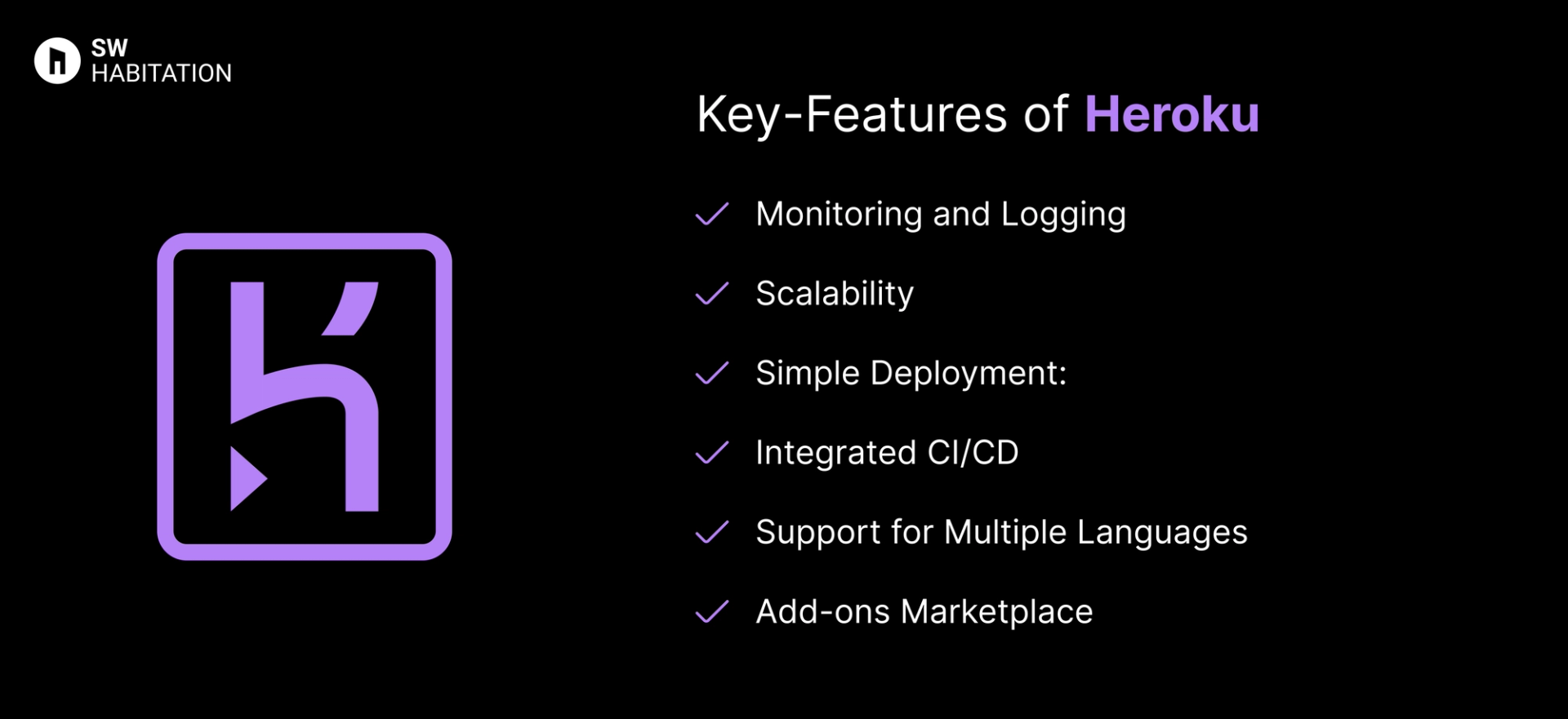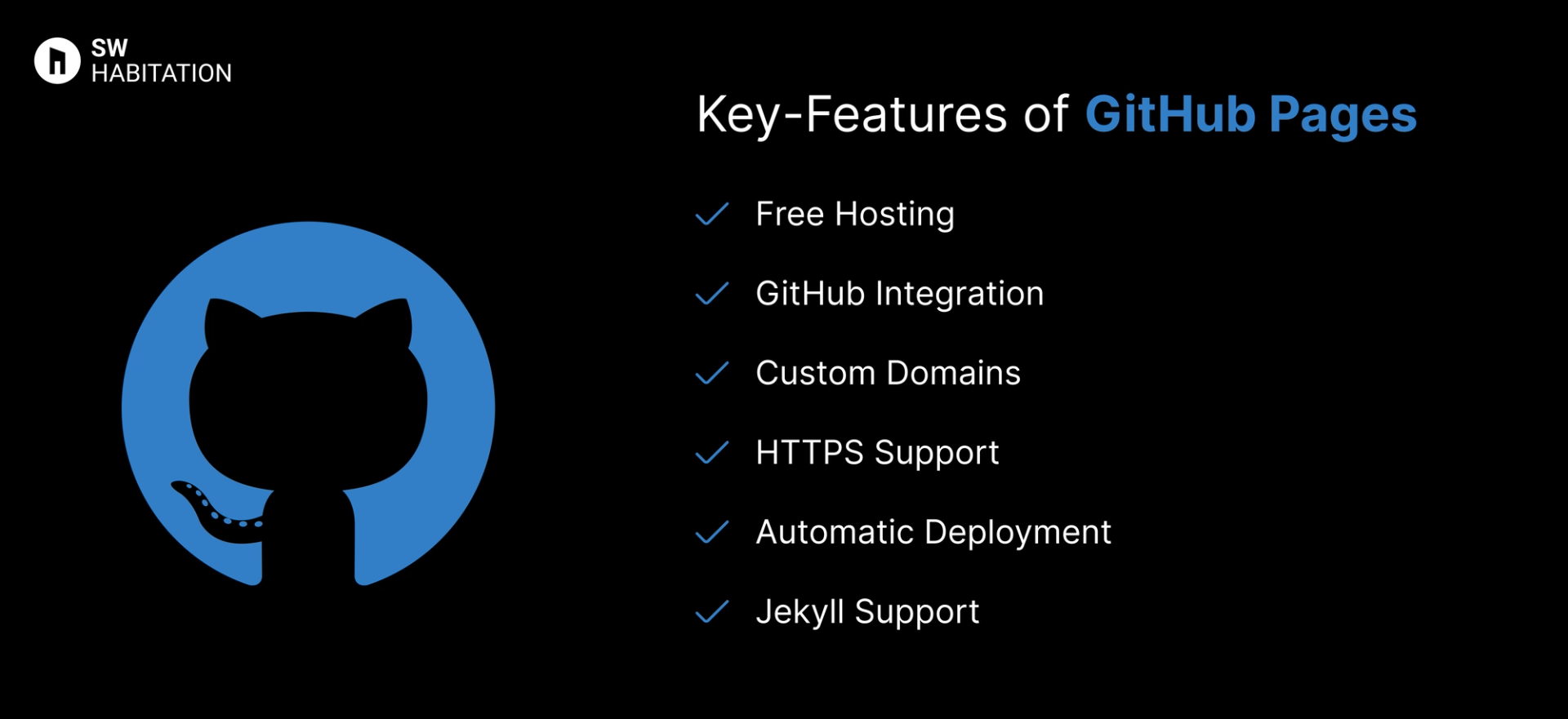Heroku vs. GitHub Pages

Heroku

GitHub Pages
You know when you’ve finished building your website and just want to get it online without dealing with all the techy stuff? That’s where deployment platforms help. They make it super easy to put your site live, just connect your code, click a button, and it’s up and running. No need to worry about servers or complicated setups.
They also take care of the important things like speed, security, and updates in the background. So while they handle the heavy stuff, you can focus on making your website look good and work great. It's simple, right?
What is Heroku ?
Heroku is a cloud platform that allows developers to build, run, and operate applications entirely in the cloud. It abstracts away infrastructure complexities, providing a platform-as-a-service (PaaS) solution for deploying apps with just a few commands. From simple web apps to complex backend services, Heroku handles the heavy lifting.
Key Features of Heroku


- Monitoring and Logging: Built-in tools for app health and performance monitoring.
- Scalability: Scale apps effortlessly with dynos (Heroku’s unit of computing power).
- Simple Deployment: Deploy directly from GitHub, Git, or CLI.
- Integrated CI/CD: Continuous integration and delivery pipelines.
- Support for Multiple Languages: Node.js, Python, Ruby, Java, Go, and more.
- Add-ons Marketplace: Extend functionality with databases, monitoring, and more.
Advantages of Heroku
- Free Tier: Great for small projects and learning.
- Easy to Use: Push your code and let Heroku handle the rest.
- Add-ons Marketplace: Access to a rich ecosystem of tools and services.
- Multi-Language Support: Deploy apps in multiple programming languages.
- Scalability: Easily scale up as your app grows.
Disadvantages of Heroku
- Performance: Not ideal for performance-heavy apps at scale.
- Cost Can Add Up: Scaling beyond the free tier gets expensive.
- Limited Customization: Less control over the infrastructure.
- Cold Starts: Apps on the free tier may sleep after inactivity, causing delays.
What is GitHub Pages ?
GitHub Pages is a static site hosting service directly integrated with GitHub. It allows you to serve static content like HTML, CSS, and JavaScript straight from your GitHub repository. You can automatically deploy sites by pushing code to specific branches, making it a hassle-free option for developers of all levels.
Key Features of GitHub Pages


- Jekyll Support: Built-in support for Jekyll static site generator.
- Automatic Deployment: Push to the main branch, and your site is live.
- Free Hosting: No cost, no catch.
- Custom Domains: Use your own domain name.
- HTTPS Support: Free SSL certificates for secure browsing.
- GitHub Integration: Deploy directly from your repository.
Advantages of GitHub Pages
- Great for Open Source: Ideal for documentation and project showcases.
- Custom Domains: Easily configure your own domain.
- Easy Setup: Simple integration with GitHub repositories.
- Automatic Deployment: Deploy directly by pushing changes.
- Free of Charge: No hosting fees, ever.
Disadvantages of GitHub Pages
- No Built-in CI/CD: Limited automation compared to other platforms.
- Static Content Only: No server-side logic or databases.
- Repo Visibility: Free plans require public repositories.
- Limited Customization: Not as feature-rich as other platforms.
Comparison Between Heroku vs GitHub Pages
Use Cases of Heroku
- Hackathons and Learning: Great for rapid development and experimentation.
- Polyglot Projects: Supports multiple programming languages in one platform.
- Startups and Small Businesses: Deploy fast without worrying about infrastructure.
- Prototyping and MVPs: Quickly test ideas with minimal setup.
Use Cases of GitHub Pages
- Project Documentation: Ideal for open-source project documentation.
- Learning Projects: Great for practicing web development and deployment.
- Blogs and Static Sites: Pair with static site generators like Jekyll or Hugo.
- Personal Projects and Portfolios: Quick, free hosting for personal websites.
Conclusion
Deployment platforms are a total game changer if you’re looking to launch your website quickly, reliably, and without any trouble. Whether it’s a personal portfolio, a startup site, or a growing business platform, they handle the technical heavy lifting like hosting, security, and scalability so you can stay focused on building great experiences for your users.
You’re not boxed into a single approach. Most platforms integrate smoothly with the tools and frameworks you already love, letting you deploy directly from your Git repository, preview updates, and roll back with ease. With lightning-fast performance and dependable uptime, deployment platforms simplify the path from code to production. Pick the one that aligns with your workflow, and you’re all set to launch with confidence 🚀
Frequently asked questions
Is Heroku free?
Heroku used to offer a free tier, but as of late 2022, it now requires a paid plan for most production use. However, it still offers low-cost hobby plans for testing and personal projects.
What are Dynos in Heroku?
Dynos are lightweight containers that run your application processes. Heroku apps run inside dynos. You can scale up by increasing the number of dynos.
Can I use a custom domain on Heroku?
Yes. You can add custom domains via the Heroku Dashboard or CLI and configure DNS settings to point to your app.
Is GitHub Pages free to use?
Yes, It’s completely free for public repositories, with no hosting fees. You can also host private repositories with GitHub Pro or a paid plan.
What kind of sites can I host on GitHub Pages?
Only static sites like portfolios, blogs, documentation, or landing pages. It doesn’t support server-side code like PHP or Node.js.
Does GitHub Pages support HTTPS?
Yes, It automatically provides HTTPS support, even for custom domains via Let’s Encrypt.
